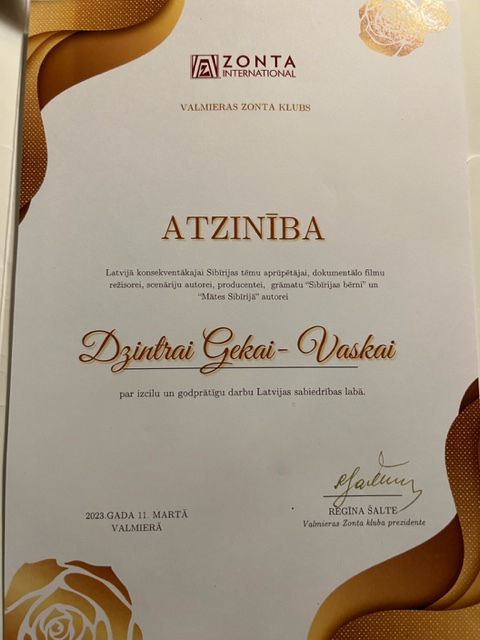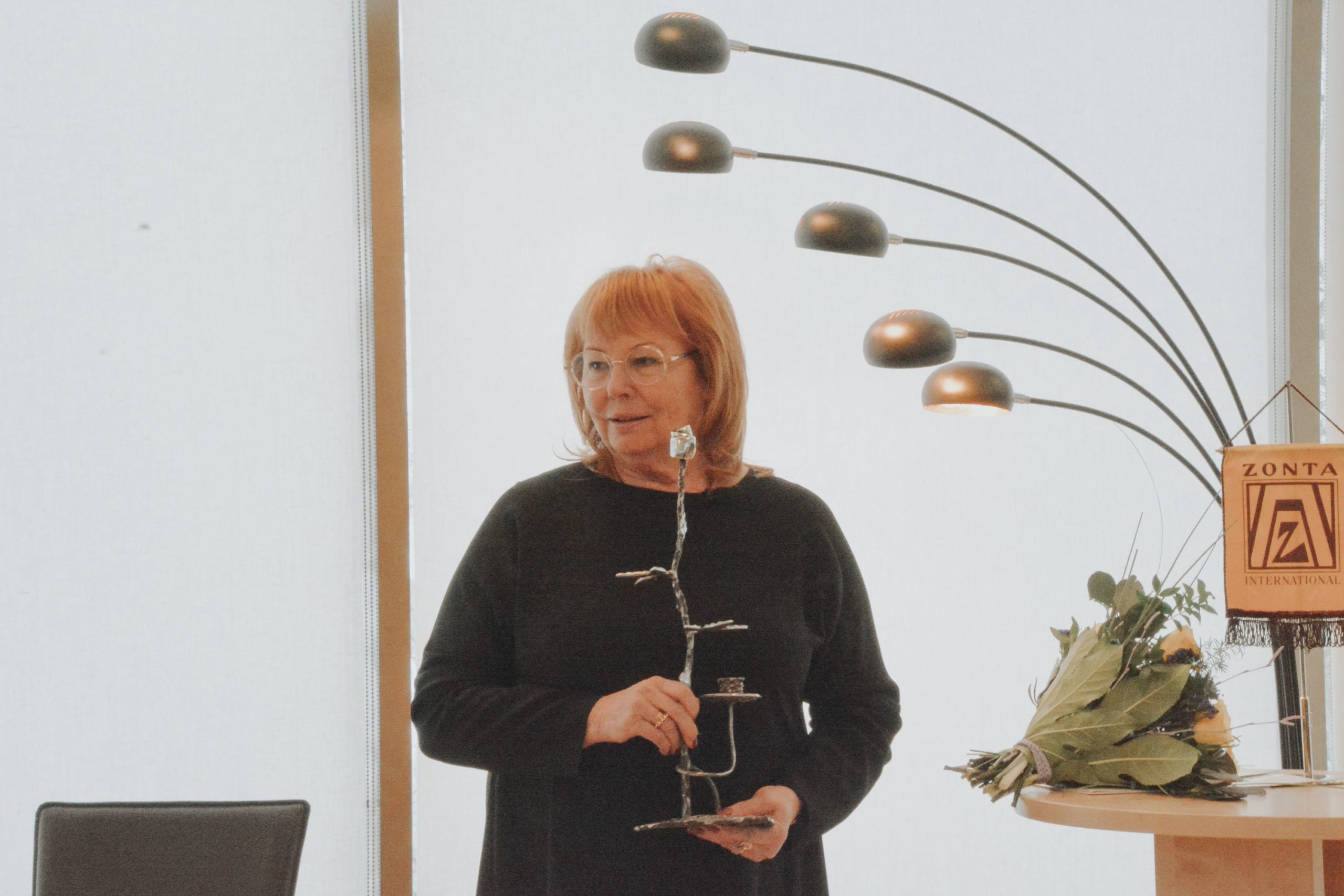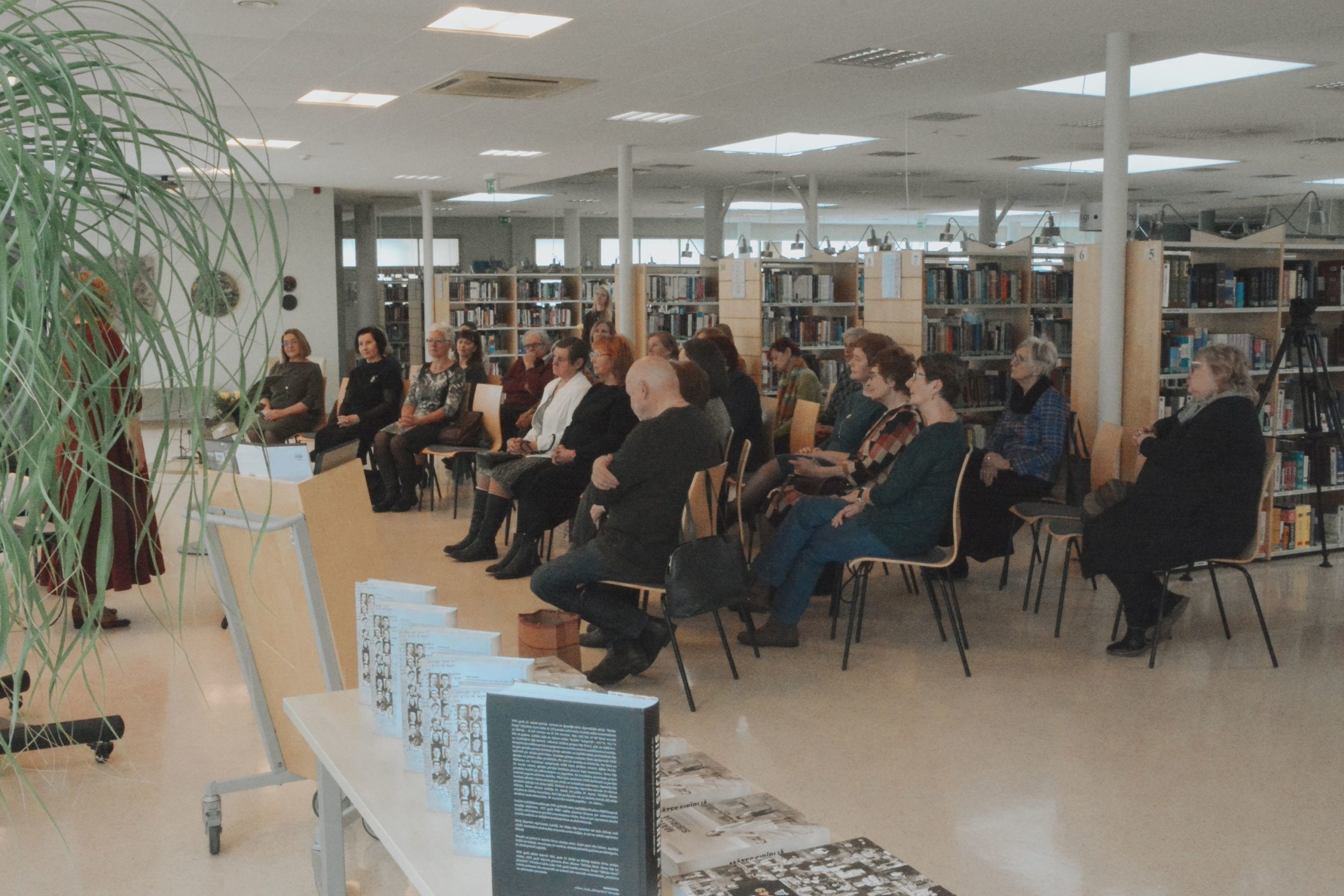Deportation victims’ memorial concert “For the Deported”
The “Children of Siberia” foundation invites you to the “Deportees” commemoration concert of the deportation victims of March 25, 1949. The concert will take place in Riga St. St. John’s Church, on March 25 at 16.00
The outstanding mixed choir of the Latvian Academy of Culture “Sõla“, artistic director Kaspars Ādamsons, conductors Artūrs Oskars Mitrevics and Jurģis Rāts, and soloists Annija Kristiāna Ādamsone (soprano), Artūrs Oskars Mitrevics (piano), Ilze Reine (organ) will take part in the concert.
The concert program includes works by Latvian composers Lūcijas Garūtas, Emīlas Dārziņš, Pēteras Vaskas, Pēteras Plakids, Alfrēdas Kalniņas, Jānis Mediņas, Raimonds Tigula, Ārik Ešenvald, etc. compositions.

The mixed choir of the Latvian Academy of Culture “Sōla” was founded in 1998. The choir’s creative biography includes not only solo concerts with programs of various eras and styles, but also cooperation with other collectives in large-scale musical (including dance) projects and participation in charity concerts. “Sōla” regularly participates in choir competitions and festivals organized in Latvia and elsewhere in the world, both in Europe and America, thus popularizing the traditions of Riga and Latvian choirs and choral music outside the borders of Latvia. The choir has recorded four volumes of music.
Annija Kristiāna Ādamsone is the winner of the Pēteras Plakiža Chamber Music Prize and the scholarship of the German Academic Exchange Service (DAAD), as well as the laureate of the competition “Ineses Galantes talanti 2021”, she graduated from the JVLMA’s vocal department Antra Jankava’s class and is currently studying her second year of master’s studies at the Opera School, Stuttgart University of Music and Performing Arts with professor Ulrike Sontags. Performs in various concert forms, manifesting in the genre of opera, oratorio, early music, chamber music and contemporary music.
Ilze Reine is not only St. St. John’s Church organist, choir conductor and leader of musical life since 1996, but also a regular concert musician and organ teacher. She taught improvisation and liturgical organ playing at the Luther Academy of the Latvian Evangelical Lutheran Church and the Jāzeps Vītolas Music Academy of Latvia, currently at the Ventspils Music High School. In addition to organ solo programs, he cooperates with various collectives in Latvia.
Artūrs Oskars Mitrevics graduated in 2022 from the Jāzeps Vītolas Latvian Academy of Music in the symphony orchestra conducting class of professor Andras Vecumnieks. Part of Artur’s creative activity is also dedicated to playing the piano. Artūrs has previously participated and received recognition in various competitions in Latvia and abroad. Artūrs is also actively involved in the life of the General Piano Department of the Academy of Music. Currently, as a pianist-concertmaster, Artūrs collaborates with the young conductors at the Riga Cathedral Choir School and the JVLMA, as well as creates collaborations with the brightest singers of his generation, Katrīnas Paula Felsberg, Daniil Kuzmina and Daina Kalnača.
Entrance to the concert is free.
Like this:
Like Loading...








 Ar šo konkursu vēlamies rosināt skolēnos interesi par Latvijas vēsturi, par 1941. gada 14. jūnija deportāciju, kuras rezultātā cieta 15425 Latvijas iedzīvotāji, par 1949. gada deportāciju, kad uz Sibīriju tika aizvesti vairāk kā 42 tūkstoši cilvēku. Par 1944. gadu, kad atkārtotas deportācijas draudu un frontes tuvošanās iespaidā vairāk kā 200 tūkstošu Latvijas pilsoņu devās bēgļu gaitās uz rietumiem. Vēlamies mudināt skolēnus izzināt mūsu valsts un savas ģimenes vēsturi, stiprināt skolēnos patriotisma jūtas un piederības sajūtu Latvijai.
Ar šo konkursu vēlamies rosināt skolēnos interesi par Latvijas vēsturi, par 1941. gada 14. jūnija deportāciju, kuras rezultātā cieta 15425 Latvijas iedzīvotāji, par 1949. gada deportāciju, kad uz Sibīriju tika aizvesti vairāk kā 42 tūkstoši cilvēku. Par 1944. gadu, kad atkārtotas deportācijas draudu un frontes tuvošanās iespaidā vairāk kā 200 tūkstošu Latvijas pilsoņu devās bēgļu gaitās uz rietumiem. Vēlamies mudināt skolēnus izzināt mūsu valsts un savas ģimenes vēsturi, stiprināt skolēnos patriotisma jūtas un piederības sajūtu Latvijai.










